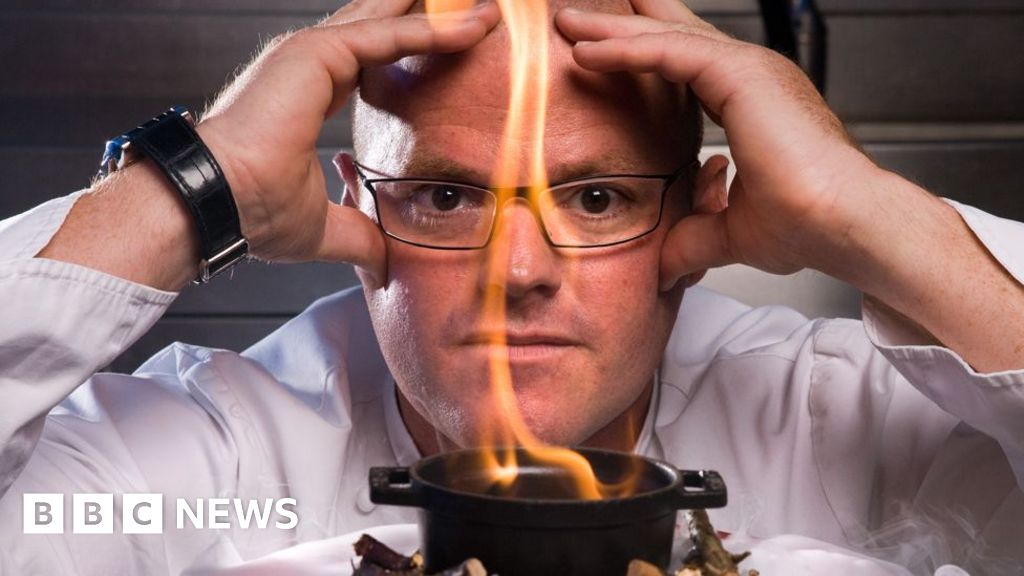Heston Blumenthal Profiled: Genius Chef's Career and Struggles with Mood Swings

Celebrity chef Heston Blumenthal has candidly opened up about his long-undiagnosed bipolar disorder and its profound impact on his family, particularly his son Jack, in a new BBC documentary titled “Heston: My Life with Bipolar”. The film captures a raw and emotional conversation between Heston and Jack, revealing the pain caused by Heston’s erratic manic behavior. Jack recounted the difficulty of their interactions, stating, “We just wanted a relaxing conversation with our dad and we weren’t able to have one. It was horrible. And it was constant.” Heston expressed deep remorse, apologizing to his son for the years of turmoil.
For decades, Heston Blumenthal, a culinary icon known for his innovative molecular gastronomy and Michelin-starred restaurants, believed his intense emotional highs and lows were simply part of being “wired differently.” He attributed his creative chaos and culinary genius to these fluctuating moods. While his imagination initially ran wild in a positive way, the depression gradually worsened, and the highs became higher, the lows much darker. He recalled moments of extreme distress, such as having to lie on the floor to cope during filming and experiencing a deluge of new ideas that he could barely grasp. It wasn't until late 2023, following a manic episode that escalated into psychosis, complete with hallucinations of guns and an obsession with death, that Heston was admitted to hospital and finally diagnosed with bipolar disorder at the age of 57.
World-renowned psychiatrist Prof John Geddes, who collaborated on the documentary, observed Heston’s behavior in a 2020 BBC interview, noting surreal, nonsensical metaphors, and immediately recognized it as a clear sign of mania. Prof Geddes highlighted how Heston’s high-octane celebrity environment, where his eccentricity was not only accepted but celebrated, allowed his erratic behavior to thrive. His brand flourished, nurturing his capricious genius, and he was supported by a professional team. However, at home, there was no such buffer, leading to significant strain on his family. Research from Bipolar UK suggests that for every person with bipolar disorder, an additional five family members are profoundly affected, with mania often causing more familial disruption than depression.
During six months of filming for the documentary, Heston underwent a challenging but crucial process: his psychiatrists gradually weaned him off the cocktail of pills initially prescribed after his hospitalization and transitioned him onto lithium, a mood-stabilizing medication. Initially, the antipsychotics and antidepressants left him feeling “zombified” and clouded his memories. However, as time progressed, his mood lifted, energy returned, and he began to regain his former self, a testament to lithium’s effectiveness. Prof Geddes emphasized that lithium is the gold standard of care for bipolar disorder, yet its use in the UK is falling, partly due to the NHS system’s inability to keep up with the required careful management from GPs and psychiatrists.
The documentary also sheds light on the broader systemic issues within UK mental healthcare. The country faces a severe shortage of psychiatrists and mental health professionals, leading to agonizingly long waiting times for patients, often stretching over years. On average, it takes more than nine years for someone to be diagnosed with bipolar disorder after their first contact with a GP. Psychiatrists frequently describe bipolar patients as “ghosts in the system,” “the ones that fell through the cracks,” or simply “forgotten” and “let down.” Timely access to psychiatrists and the proper use of lithium are directly linked to a reduction in suicidal thoughts in people with bipolar disorder, a critical point given that death by suicide is rising for individuals living with this illness in the UK, defying other downward trends.
Despite the harrowing journey that led to his diagnosis, Heston Blumenthal, after weeks in a mental health clinic and a year of medication and rebuilding, states that he would not turn off his bipolar disorder if he could. He sees it as an intrinsic part of his identity, choosing to “live with the fire, not extinguish it.” Prof Geddes concurs, stating that a person living with bipolar cannot be separated from it, as their personality is entirely connected to the condition. Treatment, he explains, doesn’t erase the condition but makes the mood changes manageable, enabling individuals to function within their family, friends, and job ecosystems. Heston’s journey, marked by misunderstood mood swings, delayed diagnosis, and a long road to balance, serves as a powerful story of resilience and the clarity found after chaos. He is now using his platform in the culinary world to speak out and advocate for greater understanding and support for mental health.






